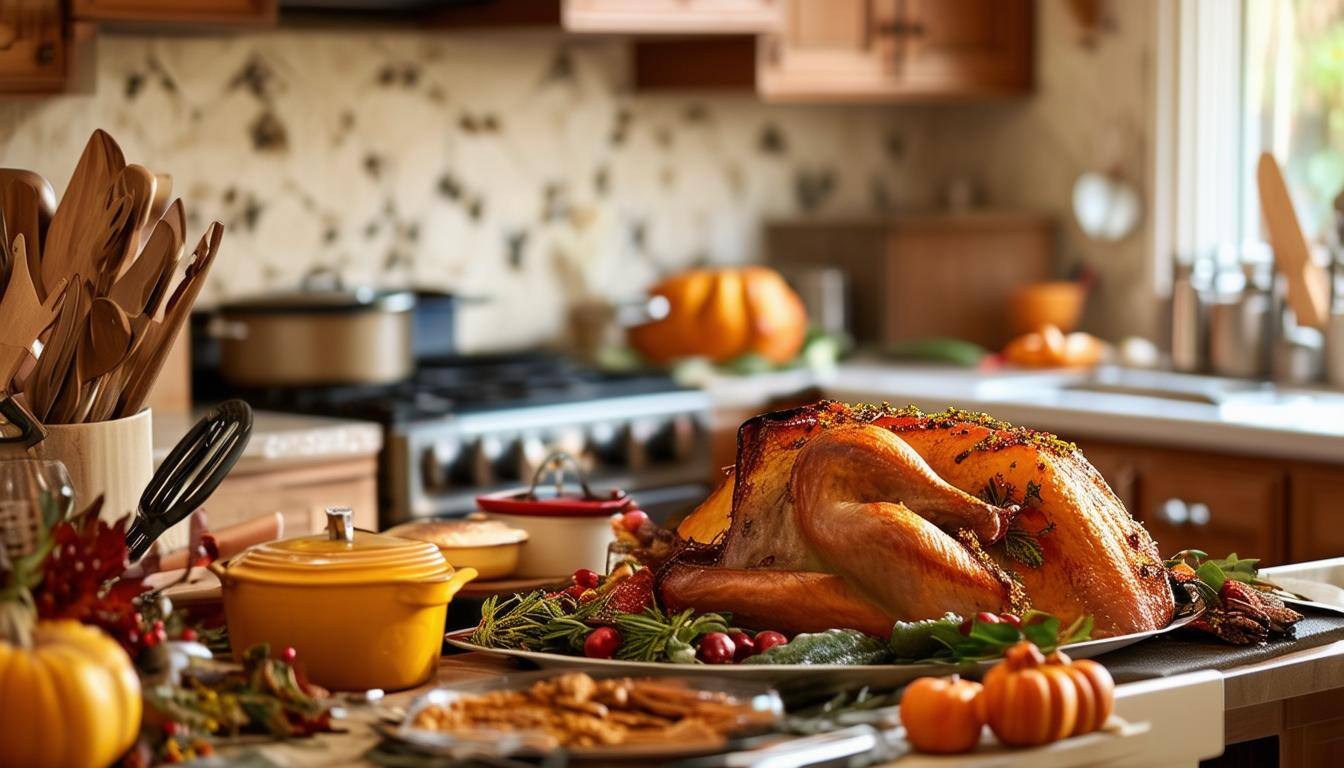Search for topics or resources
Enter your search below and hit enter or click the search icon.
November 14th, 2024
3 min read

Holiday seasons like Thanksgiving are also the prime season for kitchen fires. With the expectation of a large family gathering, there is bound to be lots of kitchen activity, making it easy to overlook risks. But these minor oversights can quickly turn disastrous, leading to property damage, injuries, or even more severe consequences.
With over 50 years of combined experience in fire restoration, we at Restore-It know precisely how fast a kitchen incident can escalate, especially when proper precautions aren't taken. Just as we've helped countless families recover from fire damage over the years, we are here to teach you valuable insights into prevention for a worry-free holiday.
This day, we will discuss practical, straightforward tips for avoiding kitchen fires, especially during busy cooking days like Thanksgiving and Christmas. You'll learn about handling stove safety, managing hot oils, and keeping flammable items at a safe distance. With these tips, you'll be well-prepared to enjoy a safe, joyful holiday season with fewer worries about potential kitchen hazards.
According to the U.S. Fire Administration (FEMA), a report from 2017-2019 shows that cooking is the number one cause of residential building fires and fire-related injuries in the country. However, there are some things you can do to avoid a fire incident in your kitchen:

In South Arkansas, families gather to prepare traditional Thanksgiving meals, and being a few minutes away from the stove can easily become a longer conversation. But one moment of distraction can spell disaster. FEMA says unattended equipment is the leading cause of ignition in nonconfined cooking fires (meaning fires extending beyond the container of origin) on houses. To avoid bad memories this holiday, here are some strategies when you have to leave the kitchen:

You might not realize it, but many flammable objects are in your kitchen right now. Paper towels, oven mitts, and even an apron can cause a fire. An excellent way to prevent problems is to maintain a "safety zone" around the stovetop, free from anything that could catch fire. Consider designating a section of the counter specifically for safe items near heat sources and keeping everything else further away. Also, turn the pot handles toward the back of the stove to prevent accidents.

Be cautious when cooking, especially during Thanksgiving. Use lower heat to prevent splattering and spillage. Avoid overcrowding the stovetop. Be extra careful with frying, as oil fires can escalate quickly. Never use water on a grease fire. For safe turkey frying, check our article.
Finally, is good to remember that while stovetops are a leading cause of kitchen fires, ovens, and microwaves aren't exempt. Double-check the oven before turning it on in case something was accidentally placed there. With microwaves, avoid heating metal, foil, or even certain ceramics that can ignite or cause sparks. These quick checks can go a long way toward keeping your kitchen safe during Thanksgiving prep.

Most kitchen fires start in confined areas, so control the initial fire to prevent it from spreading. Keep a fire extinguisher handy and ensure everyone knows how to use it. FEMA recommends following the PASS method (Pull, Aim, Squeeze, and Sweep) as a quick way to remember how to operate an extinguisher.
You can use a pan lid or a baking sheet if you don't have a fire extinguisher. Covering the container will cut oxygen and quickly extinguish the flames. Another option is to spray baking soda over the fire to put them out. In South Arkansas, where homes may have significant, bustling kitchens during Thanksgiving, these strategies offer peace of mind and can be a lifesaver.
In South Arkansas, Thanksgiving celebrations often bring together multiple generations in one home, which can mean more foot traffic and distractions in the kitchen. Set some ground rules before cooking starts, especially if children are around. Designate who's responsible for cooking, setting timers, and keeping kids and pets out of the cooking area. Also, test smoke alarms and replace batteries if needed, ensuring they're in good condition.
Kitchen fires are a real risk, especially during Thanksgiving when cooking activity hits an all-time high. Now that we at Restore-It have taught you the basic precautions, this holiday, your kitchen will be a place for creating memories, not fire hazards. If you experience an accident, we at Restore-It are here to help. Contact us, and we will bring our fire restoration experience and commitment to quickly getting your home back to normal.
Topics: